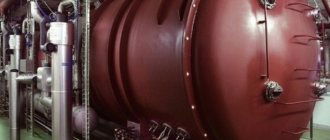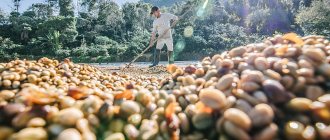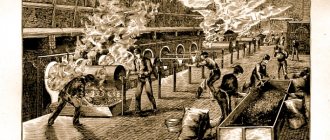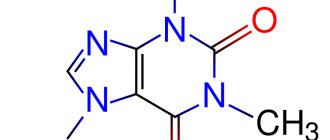For certain diseases, coffee should be consumed to a minimum. Milk and sugar, as the favorite ingredients of the drink, also impose a number of restrictions.
Coffee should be considered in the complex of characteristics of a particular person. Like, in principle, any product. Naturally, unbridled consumption of coffee will lead to disturbances in the body (not necessarily the biliary system).
Coffee is just a product. It is difficult to trace the direct relationship between the effects of coffee on your healthy gallbladder.
Already existing chronic diseases (hypertension, disorders of the central nervous system, obesity) in combination with constant consumption of coffee will become an impetus for the development of gallbladder diseases.
At the same time, for hypotensive people, people with an inactive, slow temperament, drinking coffee with a strong desire will be useful, including for the gallbladder. After taking the desired drink, such people’s blood pressure stabilizes and they have energy for active actions, even physical exercise. After an excellent workout, the flow of bile increases and digestion improves. Therefore, coffee had an extremely beneficial effect for this patient.
Much about the properties of coffee has been invented by corporations for marketing purposes; there are also proven properties. Research on the benefits and harms of coffee often contradicts each other. Thus, only relatively recently in 2021, the World Health Organization removed the stigma of a cancer-causing drink from coffee. Today, coffee has been transferred from the first category of danger to the third (possible, unproven effect of an excessively hot drink on esophageal cancer).
Reason and moderation are faithful helpers in gaining health.
The effect of coffee on the gallbladder
With a healthy gallbladder (and the entire digestive system), coffee will lead to the following changes:
- the vessels of the digestive tract will begin to narrow;
- at the same time, blood movement is activated;
- organic acids contained in coffee will trigger the formation of gastric juice, its acidity will increase;
- the gallbladder will begin to contract more strongly;
- in general, all metabolic processes are activated.
There is an opinion that coffee is almost a medicine to prevent the formation of gallstones. Unfortunately, cholelithiasis has many causes. And even with active activity of the gallbladder, there are disruptions in cholesterol metabolism, forming sediment, clots, and then dense stones in the organ.
For healthy people, everything may seem just fine. Indeed, there are advantages to stimulating your body and making it work a little faster. But there is one thing: coffee is a strong diuretic. It does not replenish fluid loss, as many drinks do, but promotes its removal.
Nutrition after an attack of cholelithiasis
In the first days, a complete abstinence from solid food is recommended. You can drink weak sweet tea, juices from fruits and berries diluted with water, rosehip decoction, still mineral water. Liquid porridges, vegetable puree soups with water, and fermented milk products are gradually introduced into the diet. However, specific nutritional recommendations during this period should be given exclusively by the attending physician on an individual basis.
Diet is necessary not only in the acute stage. It should become the norm of life so that the disease does not become chronic.
As an additional measure to help prevent relapses, doctors strongly advise leading an active lifestyle that reduces the risk of bile stagnation. According to EASL (The European Association for the Study of the Liver) recommendations, physical activity reduces the likelihood of developing gallstones by 30%. The ideal option is to do morning exercises and walk 3-5 km daily. It is very useful to swim at an average pace.
The effect of coffee on the liver
Gastroenterologists cannot say for sure whether coffee is good for the liver; their opinion is contradictory. Some doctors believe that the drink has a negative effect on the organ, while others advise patients suffering from certain pathologies to drink it without fear. But in any case, with uncontrolled consumption of coffee, it can cause liver pain. Like any product, a drink can affect the health of an organ, both positively and negatively.
Beneficial features
Coffee beans contain many beneficial substances that help improve the health of the liver and the entire body. Therefore, foreign scientists seriously approached the study of their properties. Research from the American Gastroenterological Association has shown that coffee may have a positive effect on the liver. The drink has a number of beneficial effects:
- It has a hepatoprotective effect - it prevents the destruction of hepatocytes and stimulates their restoration. Patients who regularly consumed this drink were less likely to experience deviations in biochemical tests.
- When used wisely, it prevents or slows down the development of fibrosis and cirrhosis.
- Reduces the possibility of obesity of the liver and other internal organs, as it improves metabolism.
- Prevents the formation of stones.
- Removes toxins.
- Prevents the occurrence of liver cancer. Italian researchers believe that coffee can reduce the risk of developing hepatocellular carcinoma (the most common form of liver cancer) by 40%
- Helps in the treatment of hepatitis C. Studies have shown that patients who regularly drink the drink in parallel with the main therapy are much more likely to experience positive dynamics.
Harmful properties
When asked whether coffee can cause liver pain, experts give a positive answer. Excessive use may result in heaviness and pain in the right side. In some cases, this drink can harm the health of the liver and the entire body, as it increases the formation of bile. Its stagnation has a detrimental effect on the general condition and appearance of the patient.
Instant drinks often contain flavoring additives that negatively affect all organs of the gastrointestinal tract, so it is contraindicated for diseases of the digestive system.
An unhealthy liver perceives strong coffee as a toxin, which it will try to get rid of. This increases the load and can disrupt the functioning of the organ.
What are the benefits of coffee for the liver?
So is coffee good for the liver? According to doctors, the aromatic hot drink has many beneficial qualities, namely:
- Reduces the number of pathologically modified cells, favors the restoration of hepatocytes, preventing the likelihood of developing cirrhosis.
- Normalizes the amount of iron and cholesterol in the bloodstream.
- Promotes liver recovery after hepatitis C. Inhibits the activity of receptors that promote the release of alanine aminotransferase.
- Stops the process of scarring in the parenchyma (structure) of the liver, thereby preventing the appearance of fibrosis.
- Reduces the effect of alcoholic drinks and toxic substances. The benefit of fresh coffee for the liver is that the load on the organ is reduced.
- Strong coffee has a choleretic effect. After each meal, bile accumulates in the gallbladder, which must be at least partially eliminated once a day. The benefit of coffee is that it empties the gallbladder, since stagnation can cause harm to the liver in the form of over-absorption of food, excessive release of alkali and the formation of stones.
- Regulates lipid metabolism, resists obesity of the gland.
- Softens the effect of fats on the organ, reducing the likelihood of fatty hepatosis.
Important! In order for the drink to bring only benefits, you need to drink no more than 3 cups a day and in its natural form, namely, made from coffee beans.
Coffee has numerous beneficial properties
The benefits of coffee for the liver and the whole body
High-quality natural coffee contains a huge number of components that have a beneficial effect on the body. This does not apply to soluble varieties, which lose most of the beneficial substances during their production. The table shows the chemical composition of the coffee drink and the properties that each of its components has.
| Substance | Beneficial features |
| Aromatic compounds | They have a similar effect to aromatherapy - they calm the nervous system and activate metabolic processes. |
| Caffeine, trigonelin | These substances belong to the group of alkaloids that affect the nervous system and psychological state. They act on the central nervous system, relieving the feeling of drowsiness. In addition, they stimulate blood circulation, as a result of which the liver receives all the necessary substances in sufficient quantities. |
| Organic acids | These natural acids affect the functioning of the gastrointestinal tract. Under their influence, the metabolic processes of proteins, fats and carbohydrates are normalized, which relieves additional stress on the liver. |
| Vitamins | B vitamins are involved in all metabolic processes. They restore the structure of the walls of blood vessels, speed up metabolism and energy. |
| Nitrogenous components | These components are necessary for the construction of new proteins. The function is useful for the liver, since normally it should be constantly updated. |
| Minerals | Minerals are necessary for proper carbohydrate metabolism. This process occurs partly in the liver, where glucose and its derivatives are converted into glycogen. |
| Tannin | Tannins protect the liver from the effects of free radicals. When they enter the body, pathological reactions of lipid peroxidation are blocked. As a result, the liver can be protected from premature aging and apoptosis (programmed death) of hepatocytes. |
All the benefits of coffee are reflected in the functioning of the liver. With its regular use, vascular tone is restored, which is why the cells are supplied with a large amount of vitamins, minerals, nutrients and oxygen. In addition, coffee affects the production of gastric juice and bile, which makes food digested better. This drink can provoke a number of positive changes.
Another property is the prevention of the formation of scar connective tissue and the development of cirrhosis.
Coffee beans contain components that are involved in lipid metabolism. Thanks to this, the risk of fatty liver disease (fatty liver degeneration) is reduced.
The liver begins to recover faster from coffee. This is useful not only during the period of rehabilitation after various diseases, but also in everyday life.
The benefits of coffee for the liver and other organs are based on its chemical composition. If you choose a high-quality bean drink rather than its instant counterpart, improvements can be noticed after a long time. For people who suffer from diseases of the cardiovascular system, a coffee drink with low caffeine content has been developed. It tastes a little different, but has no less benefits than regular coffee.
Coffee and liver - interesting facts
Opinions about the effect of coffee on the liver have always been controversial. According to the latest research data, it turned out that the drink has a lot of beneficial properties due to its rich composition. It includes:
- Caffeine – provides organ cells with oxygen and can speed up metabolic processes from 3 to 11%. Normalizes lipid metabolic processes, the disruption of which can lead to chronic hepatic dystrophy.
- Essential oils have an antimicrobial effect and stimulate the body's defenses.
- Nitrogen elements - synthesize protein structures, renewing liver tissue.
- Tanning components – prevent premature aging and apoptosis of hepatocytes, neutralize the effects of free radicals.
- Chlorogenic acid – promotes fat burning.
- Organic acids – regulate the acid-base balance.
- Minerals – contribute to the conversion of glucose into glycogen, which significantly helps the organ in performing vital functions.
The effect of natural coffee on the liver and gall bladder is different. The drink is especially dangerous for cholecystitis. Caffeine tones the gastrointestinal tract and increases the production of gastric juice. At the same time, the gallbladder releases more bile than necessary. As a result, the hollow organ stretches and increases in size: the patient feels aching pain and heaviness.
The absence of nerve endings in the liver can play a cruel joke on the patient. The patient learns about the pathology only in the later stages, when treatment is almost impossible. In 83% of cases this leads to death.
Effects of coffee on the pancreas
Coffee stimulates digestive processes, in which the pancreas is actively involved. The effect of caffeine depends on its correct use. In this regard, the effect of the drink may differ:
- Drinking a cup of coffee on an empty stomach activates the digestion process. It irritates the mucous membranes, as a result of which they begin to be digested by the stomach itself.
- Regular consumption of large doses of caffeine depletes the cells of the pancreas, which threatens pancreatitis.
- If you drink coffee some time after eating, the negative effect will not be pronounced.
- A number of studies have shown that caffeine stimulates the release of adrenaline, a hormone that speeds up the production of insulin. According to other data, the drink can prevent the development of diabetes.
The effect of coffee on liver diseases
The research results are enough to find out how coffee affects the liver of a healthy person. At the cellular level, it helps cleanse the body of toxins, which significantly reduces the load on the liver tissue. It prevents the formation of chemical bonds between aminotransferases (enzymes) and receptors, and this process helps prevent inflammatory diseases.
The question is whether it is possible to drink coffee if the liver is already suffering from acute or chronic processes.
Doctors' recommendations on this matter are as follows:
- in case of cirrhosis, a coffee drink with low caffeine content prevents the formation of scar connective tissue;
- in patients with anemia, iron deposition in hepatocytes slows down, reducing the likelihood of hemosiderosis;
- Coffee can prevent another relapse of hepatitis C.
If your liver hurts after drinking coffee, you should take additional tests. Perhaps, during its entry into the body, metabolic processes are activated, during which the liver removes toxins. You may also feel worse if you drink it on an empty stomach. In addition, if there are stones in the gallbladder, the flow of bile will be impaired, and coffee will stimulate the contraction of the bladder. The pain is also localized in the right hypochondrium.
The question of whether coffee is harmful to the liver remains open. On the one hand, its components have a beneficial effect on the body as a whole and on the liver in particular. It helps remove toxins, stimulates the processes of lipid, carbohydrate, protein and energy metabolism. On the other hand, only a high-quality drink can produce such an effect. Soluble powder is more likely to cause harm due to the high content of dyes, flavors and preservatives, and during its production all beneficial substances will lose their properties.
Doctor Cappuccino: how coffee saves you from gallstones, headaches and insomnia
Several scientific studies have shown that regular coffee consumption reduces the risk of developing gallstones.
Photo: RUSSIAN LOOK
After the publication of “Five diseases that coffee protects against,” where we talked about the latest scientific data about the medicinal properties of our favorite drink, visitors to the kp.ru website began to actively share their own stories and recipes. In what cases are these isolated, individual reactions, and when can the described experience be useful to many? We asked KP’s “coffee” expert, a geneticist and head of the analytical department of the Atlas biomedical holding, Dmitry Nikogosov, to comment on the most impressive responses.
“ONLY SEDIMENT LEFT”
Galina:
— I drink natural coffee around the clock, without milk or sugar. I got rid of many diseases, including stones in the gall bladder - only sediment remained.
Expert comment:
“Several scientific studies have shown that regular coffee consumption reduces the risk of developing gallstone disease ,” Dmitry Nikogosov rejoices. “But today there is no data on the treatment of this disease with the help of an aromatic drink.
Coffee is known to slightly enhance gallbladder motility, and this may help prevent bile stagnation and stone formation. However, coffee is not able to dissolve stones that have already formed in the gallbladder. So if you have gallstone disease, you shouldn’t rely on an invigorating drink - it’s better to go to the doctor right away.
Moreover, if the stones are large enough, then coffee, by stimulating contractions of the gallbladder, can cause acute cholecystitis! There is a risk that the stone will clog the mouth of the gallbladder due to contractions, and inflammation will begin.
"AFTER THE CUP ON THE SIDE"
Vladimir
— Every day I drink 2–3 cups of natural ground coffee with cream and sugar. And one cup is a must before bed. After that I fall asleep perfectly within 30 minutes. So coffee is a great way for me to combat insomnia.
We asked KP’s “coffee” expert, geneticist, head of the analytical department of the biomedical holding Atlas, Dmitry Nikogosov, to comment on the most impressive responses.
Guest #2514:
After lunch I allow myself a cup of espresso, then I can take a nap for half an hour (if time permits). You wake up fresh as a cucumber.
Expert comment:
— Different people have different ratios of so-called adenosine receptors in the brain. These are what caffeine blocks. For those who have more “inhibitory” receptors, coffee will be a stimulant, as it will block the “brakes”. For such people, coffee will not help you fall asleep, but, on the contrary, will invigorate you.
At the same time, there are people whose brains are dominated by activating adenosine receptors—like “gas pedals.” Such coffee drinkers will block the activation of the gas pedals with caffeine, so they will feel sleepy. Vladimir apparently falls into this category.
But the case when the reader (Guest No. 2514. - Ed.) drinks coffee before going to bed at lunch, and then wakes up fresh and alert, is due to the fact that during half an hour of sleep the coffee just has time to take effect, so after sleep there is a state of, oh in which Igor Guberman wrote: “It happens that you wake up like a bird, with a winged spring on edge, and you want to live and work; but by breakfast it goes away.”
IF YOUR HEAD IS BURNING
Olga:
— I drink brewed coffee for medicinal purposes - if I have a headache in the morning.
Expert comment:
— Headaches come in different forms. The most common types are migraine, tension headache and pain associated with vasodilatation of the meninges. It is with the latter type of pain that coffee can help.
But often a person does not know what kind of pain is tormenting his head. So I don’t presume to advise everyone to drink coffee if they have a headache. Either you need to know the diagnosis - the exact type of pain, or just try it to understand from personal experience.
How does the aromatic drink affect you? Share your own experience!
Potential Harm
In some situations, coffee can be not only beneficial, but also harmful. But there are a number of nuances here. It is important to separate natural bean freshly brewed coffee and various sublimate-based drinks. Not all factories follow the recipe; some find it easier to add flavorings and colorings to a soluble concentrate than to actually cool a freshly brewed drink, dry it, grind it and package it in a convenient container.
Harm of instant coffee:
- The product may contain toxins. You should refrain from cheap varieties offered by the mass market. The information on the packaging will tell you whether the drink contains dyes (colors) and flavor and aroma enhancers;
- Does not go well with sweet and fatty foods. The simultaneous consumption of all three products leads to a sharp narrowing of the liver vessels. Problems with blood circulation do not allow toxins to be effectively eliminated, and the body becomes poisoned. Regular overload of the liver can lead to metabolic disorders, fatty hepatosis, and other problems;
- Beverage abuse. And even the healthiest product in huge quantities causes liver problems. Systemic disorders - the more we drink an invigorating drink, the less quality we eat, as our appetite disappears. More sweets, fatty foods, semi-finished products to support activity - a greater load on the liver cells. The result is an increased susceptibility to disease.
Is it possible to talk about the dangers of a natural drink for the liver? Yes, if a person drinks too much, constantly, and does not control blood pressure and blood sugar levels. An increase in blood pressure has a detrimental effect on the liver vessels, and during physical activity can cause micro-tears.
As we have already found out above, coffee has many positive properties, including for the gastrointestinal tract, including the liver.
And it can cause harm for the following reasons:
- abuse;
- consumption of low-quality instant drink;
- consumption of coffee for existing serious pathologies, without prior approval from a doctor.
Thus, you should give preference to a natural drink, and also observe the measure - drink no more than 2-3 cups a day. In addition, it is important to be aware of all existing diseases for which coffee may be contraindicated. If these 3 conditions are met, there is nothing to fear and you should not give up your favorite drink, especially considering its many beneficial properties.
But for even greater safety, we recommend that you follow other rules described below.
Inflammation of the gallbladder and drinking coffee
The principle of treating inflammation is to reduce the load, eliminate pain, which is very strong with cholecystitis, dissolve bile and increase its fluidity, as well as relieve inflammation inside the bladder.
How coffee affects the gallbladder - harm and benefit:
- If you drink a lot of it without drinking water, the bile will thicken and be deposited in the form of salts, which subsequently form stones.
- When consumed on an empty stomach, the load on the entire gastrointestinal tract increases, which has a bad effect on further digestion of food.
- Stagnation of bile occurs in the hepatic ducts and bladder.
- Coffee has a choleretic effect, so in case of calculous cholecystitis, large doses of a strong drink can cause contractions of the walls and the stones will begin to move along the ducts, which can cause blockage and an attack of acute pain.
Is it possible to drink coffee if you have cholelithiasis: women and men have different statistics for this disease. Mostly women get sick, so they especially need to follow a diet and drink water during frequent coffee feasts.
With proper consumption of the drink, the condition of the digestive tract can be improved: it can renew liver cells, remove harmful substances, but this requires water in which they will dissolve and leave the body. Use essential oils to stop the action of pathogenic microorganisms.
Rules for use without harm to health
Thinking about whether drinking coffee is harmful to the health of the liver and the body as a whole, many people refuse to drink it. To ensure that the drink does not have a negative effect, you should choose it correctly and not exceed the recommended standards.
Quality
Buy only natural coffee, which retains most of the nutrients. The instant drink may cause digestive upset due to the food additives it contains. If possible, buy bean coffee rather than ground coffee. Avoid fragrances. High-quality coffee beans should not have any foreign odors (rubber, mold, burning).
Quantity
Scientists have found that the safe dose of caffeine for a healthy person is 400 mg. A cup of coffee, depending on its volume, may contain from 50 to 300 mg of the substance. Typically, 200 ml of drink contains 100 mg of caffeine. Therefore, you can drink 4 cups a day without harm to your health, if these are natural grains. Instant coffee should be drunk no more than 2 times a day, as it contains harmful food additives that adversely affect the health of the gastrointestinal tract.
Principles and norms of use
In the absence of direct contraindications, there is no reason to completely give up coffee. The drink can be beneficial for the body. To reduce the harmful effects of substances contained in coffee beans, it is recommended to follow some simple rules.
Principles for safe drinking coffee:
- It is better to choose Arabica rather than Robusta, as the first variety contains less caffeine.
- The drink should not be consumed on an empty stomach, as this increases the secretion of digestive juice.
- It is advisable to take a break of at least 3 hours between drinking cups.
- It is best to drink coffee 30-60 minutes after eating.
- During stressful situations and lack of sleep, it is worth reducing the amount of drink consumed so as not to overload the body.
- Smoking people should reduce their coffee consumption by 1.5-2 times to reduce the load on the heart and blood vessels.
- The drink negatively affects bones and joints. Therefore, older people should also drink it in limited quantities, up to 1 cup per day.
- It is not recommended to drink coffee with alcoholic beverages, as this combination increases the load on the heart.
Can coffee cause liver pain?
Modern science insists that the liver should not hurt if we are talking about moderate consumption of high-quality coffee. Another thing is the pancreas and bile ducts. If you drink too much, or choose cheap, low-quality options, pain and even exacerbation of chronic diseases are possible.
Pain and heaviness in the liver can occur from combinations of coffee and alcohol, or coffee and fatty foods. Scientific sources are conflicting on this issue. Some say that drinking caffeine with alcohol helps protect liver cells from alcohol damage, others say that such a combination poisons the body and should never be practiced.
There is evidence that the liver can malfunction from a constant breakfast in the style of “coffee and something sweet and fatty at the same time.” The American doctor D. Kessler writes about this phenomenon, as well as about addiction to caffeine and sugar. He believes that black coffee is completely harmless, but you should not drink something like Frappuccino, RAF coffee or cocktails with sweet cream, cookies and other ingredients. David reminds us that fatty liver disease is a constant companion for coffee cocktail lovers. And its presence prevents the liver from participating normally in lipid metabolism, and contributes to general obesity.
Thus, the root of the problem may not be in the drink at all , but in a general imbalance in the diet, the presence of a large amount of unhealthy fats and fried foods in the diet. Many people simply consume excess calories, gain weight, and have nowhere else to store fat except in the liver.
Is it possible to drink if you are sick?
Classical dietetics, based on the textbook by M.I. Pevzner from the 30s of the last century denies us the pleasure. According to Soviet medicine, the only coffee that is suitable for a diseased liver is a barely cloudy drink with a lot of milk.
Modern medicine is not so categorical. In Europe and America, the drink is allowed, introducing only additional rules for use for various diseases:
- Enlarged liver. Complete exclusion of instant coffee, switching to natural freshly brewed analogues, giving up alcohol, sweets and fried foods are the general recommendations of nutritionists.
- Fatty hepatosis. Usually closely related to pre-existing lipid metabolism disorders and dietary imbalances. If the diet is dominated by fats, simple carbohydrates, and there is not enough protein, coffee can do little to spoil or correct anything. All doctors agree that if you have fatty hepatosis, you can drink 2 cups of black coffee a day, or dilute the drink with low-fat milk, or its plant analogue. You should not add a bun, chocolate or other sweets.
- Hepatitis. For hepatitis of any form, it is advised to follow a gentle diet and include low-fat foods, porridge from natural cereals, and lean poultry and fish in the diet, and drink only weak and natural coffee.
- Cirrhosis. The most severe disease, which affects metabolism very significantly, requires caffeine limitation. You can drink natural Americano no more than 1-2 times a week. If the disease is not severe, you can consult your doctor about drinking coffee more often.
Coffee for hepatitis - benefit or harm
In case of severe liver diseases - cancer, hepatitis C - coffee beans can improve the condition and even stop the development of pathology. This is evidenced by a study that was conducted in America. It involved patients with hepatitis C. In the first group, who were recommended to drink 1 cup a day, an immune reaction to the virus was observed, which indicates increased immune defense.
People with congenital pathologies of the liver tissue need to drink 2 cups of espresso a day, diluted with clean still water, to eliminate congestion and improve metabolism. This helps relieve intoxication and prevent the degeneration of parenchyma into connective or adipose tissue.
Special versions of the drink
For those who want to improve their cleansing properties and get more benefits, there are ethnic coffees with additives.
For example, in Chinese folk medicine, coffee is mixed with an extract of the Cordyceps tree fungus.
This product is often marketed as a weight loss drink, hepatoprotector, and immune booster. Yes, these properties are inherent in the mixture, but it cannot replace medications prescribed by a doctor. Coffee with cordyceps should be considered an interesting ethnic drink with beneficial properties.
Rules for use without harm to health
Thinking about whether drinking coffee is harmful to the health of the liver and the body as a whole, many people refuse to drink it. To ensure that the drink does not have a negative effect, you should choose it correctly and not exceed the recommended standards.
Quality
Buy only natural coffee, which retains most of the nutrients. The instant drink may cause digestive upset due to the food additives it contains. If possible, buy bean coffee rather than ground coffee. Avoid fragrances. High-quality coffee beans should not have any foreign odors (rubber, mold, burning).
Quantity
Scientists have found that the safe dose of caffeine for a healthy person is 400 mg. A cup of coffee, depending on its volume, may contain from 50 to 300 mg of the substance. Typically, 200 ml of drink contains 100 mg of caffeine. Therefore, you can drink 4 cups a day without harm to your health, if these are natural grains. Instant coffee should be drunk no more than 2 times a day, as it contains harmful food additives that adversely affect the health of the gastrointestinal tract.
Principles and norms of use
In the absence of direct contraindications, there is no reason to completely give up coffee. The drink can be beneficial for the body. To reduce the harmful effects of substances contained in coffee beans, it is recommended to follow some simple rules.
Principles for safe drinking coffee:
- It is better to choose Arabica rather than Robusta, as the first variety contains less caffeine.
- The drink should not be consumed on an empty stomach, as this increases the secretion of digestive juice.
- It is advisable to take a break of at least 3 hours between drinking cups.
- It is best to drink coffee 30-60 minutes after eating.
- During stressful situations and lack of sleep, it is worth reducing the amount of drink consumed so as not to overload the body.
- Smoking people should reduce their coffee consumption by 1.5-2 times to reduce the load on the heart and blood vessels.
- The drink negatively affects bones and joints. Therefore, older people should also drink it in limited quantities, up to 1 cup per day.
- It is not recommended to drink coffee with alcoholic beverages, as this combination increases the load on the heart.
Reasons to give up coffee
Sometimes even a small amount of coffee can have negative effects on your health. In the presence of certain conditions, the harm of the drink increases significantly. In such cases it should be abandoned. You should avoid drinking coffee if you experience the following symptoms:
- Pain in the heart area, headache. These symptoms may indicate high blood pressure and the development of heart disease.
- Yellow coating on the tongue, nausea, heartburn, indigestion, diarrhea. All these symptoms may indicate the development of gastrointestinal diseases.
- Pimples. Coffee contributes to oily skin.
- Peeling of nails. This phenomenon indicates a lack of calcium in the body.
You should also avoid drinking the drink on the day of an ultrasound scan, blood, urine, seminal fluid tests, in the postoperative period, after visiting the dentist, while wearing braces, during treatment with antibiotics and non-steroidal anti-inflammatory drugs.
When is coffee prohibited?
Due to the high caffeine content, drinking the drink has its limitations. Its invigorating effect is not always beneficial for the body. There is a whole list of conditions and diseases in which coffee can seriously harm your health. Cases when coffee is contraindicated:
- Gastrointestinal diseases: gastritis, gastric ulcer, pancreatitis, dysbacteriosis, poisoning.
- Cardiovascular system disorders: arrhythmia, arterial hypertension, atherosclerosis, varicose veins, strokes and heart attacks.
- Mastopathy.
- Uterine fibroids.
- Urolithiasis and other diseases of the kidneys and bladder.
- Hyperthyroidism.
- Allergy, psoriasis.
- Pregnancy.
- Children's age up to 10 years.
Drinking coffee will have a positive effect on both the liver and the entire body only in the absence of absolute contraindications. The main thing is to drink it correctly and in moderation so as not to harm your health.
Does coffee harm the liver?
Many people complain that coffee makes their liver hurt a lot. Most often this happens due to violation of the rules for drinking the drink. In order not to cause a negative reaction in the body, it is forbidden to drink coffee:
- On an empty stomach. The drink destroys the gastric mucosa, which can lead to ulcers or gastritis. A similar situation will arise if you take espresso diluted with milk on an empty stomach. In this case, the formation of insoluble elements occurs, which remain in the kidneys and bladder in the form of stones.
- Combined with alcoholic drinks. Alcohol in combination with strong coffee puts a tremendous strain on the pancreas and liver, which causes an increase in glucose levels in the bloodstream and tachycardia.
- In combination with fatty or fried foods, just as in the above case, there is an increase in blood glucose, which can contribute to the onset of diabetes.
In addition, the harm of coffee causes deterioration in the patency of hematopoietic vessels and disruption of the physiological functions of liver cells.
What are the dangers of excessive consumption?
Drinking too much coffee can be hazardous to your health.
Can your liver hurt after drinking coffee and why? This usually happens if the drink is of poor quality or if instant powder is used instead of a natural product. Flavorings and artificial additives quickly accumulate, and the liver has to work hard to remove them from the body. If a person abuses the drink systematically, this can lead to disturbances in the functioning of the organ.
The most dangerous component of the drink is caffestol, which causes heart palpitations, increases blood cholesterol and leaches calcium from bones. Big coffee lovers are advised to replenish calcium reserves with food or vitamins.









